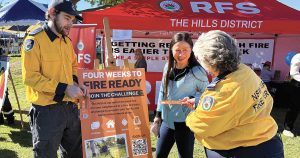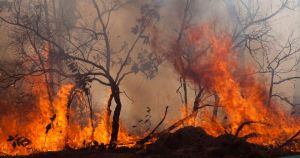Readers are familiar with plants in our landscape that are not indigenous. Some are there as escaped reminders of ‘Home’, like many garden flowers; some were introduced for commercial purposes, like fennel and some, through arrogant ignorance of the benefits of what already existed, as in the case of native grasses and paspalum. Some are here because of climate change, like the Kangaroo Apple. To uncover when and where they first appeared make interesting research. Mostly it is hard to put an exact date, except maybe for January 1788 or St Hubert’s Island and the work of T.A Scott.
Can any of the introduced plants in our community tell a story that is unique? Maybe the experiment with the wretched kapok vine might be attributed to a local school teacher at the beginning of the 20th C, or the invasion of that little yellow flower beside the road, or maybe we should thank the person who introduced the freesias. There is obviously a lot we could learn and maybe that is a project for a horticulture student. The plant in the photograph is of a type of fern, commonly called ‘the tapeworm plant’ for obvious reasons. Its botanical name is Homalocladium platycladum. The original specimen was collected from an isolated spot in Marramarra. It is a native of The Solomon Islands; so here is an hypothesus to consider if when and how this interloper arrived.
During the Second World War there were at least two large military camps established in the bush near Arcadia.There were also groups in Galston Gorge and above Calabash Bay to mine the roads and their unit names are recorded in the graffiti. The Z Special unit was training on the Hawkesbury. Old hands may remember other camps in our district and the Society would like to hear from them.
Is it too much of a stretch of imagination to conclude that, in one of these locations there was a vehicle that had, within the adhering Solomon Island mud, a seed that was the progenitor of our isolated tape worm plant?
Local history takes all shapes and forms and the Dural and District Historical Society is always ready to help readers uncover the variety.




